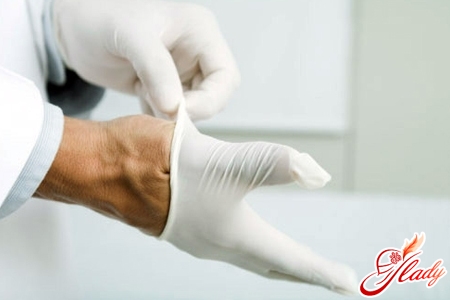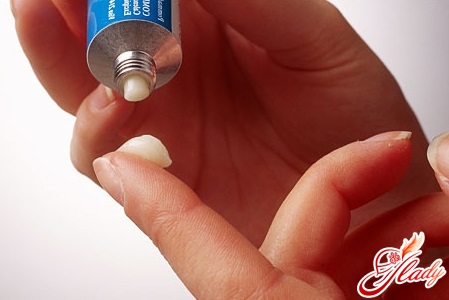
Genital herpes is one oftypes of herpes infection. It has been established that today there are 8 such types. Herpes is caused by viruses. They are present in the body of almost every person living on earth. People in whose body no herpes symptom pathogens are found can be called exceptional: there are only 10% of them on Earth. In most people, this virus lies dormant in the nerve nodes located near the spinal cord all their lives. It does not manifest itself in any way until a failure occurs in the human immune system. Primary infection is usually caused by HSV-1 (herpes simplex virus). When the disease recurs, HSV-2 is activated. Genital herpes most often affects women, although men sometimes suffer from this disease too. Usually, ulcers affect the genitals, areas adjacent to them and the anus. Rarely, genital herpes directly affects the perineum, cervix, ovaries. The damage caused by the virus to the ovaries and uterus can be irreparable. Genital herpes often leads to infertility, sometimes - to the death of a woman infected with HSV. Unlike the rare household herpes, genital herpes is transmitted exclusively sexually. Particularly dangerous are oral-genital, oral-anal, genital-oral relations with strangers, although classic unprotected contact with a sick person can also lead to infection. The use of condoms does not exclude, but reduces the risk of infection with herpes by about half. The following are most at risk of infection:
- women (men) with weakened immunity. The cause of this weakening can be stresses, frequent colds, chemo- or radiotherapy in oncology.
- People who often change their sexual partners, who have sex with sick or unfamiliar people, who do not use barrier preservatives.

Causes of development of genital herpes
Symptoms of genital herpes externallydo not always manifest themselves. But the absence of symptoms does not make the disease less safe: a person infected with the herpes virus is always dangerous for sexual partners. Any contact with the skin of an infected person can cause the disease of his partner. Particularly susceptible to the virus are:
- Mucous, located in the mouth
- Sexual organs of women (men)
- The area adjacent to the anus, the anus itself.
That is why infection is possible both orally andduring genital and anal sex. A partner with herpetic sores on the lips can easily transmit the infection to the partner's genitals during oral sex. Scientists have found that the spread of genital herpes is directly related to the socialization of people. Thus, risk factors can be:
- Random sex (both unprotected and protected, although in the latter case the risk of infection is reduced by half).
- A large number of sexual (acquaintances or strangers) partners. It is statistically proven that exactly half of the women affected by herpes are unmarried.
- Low social standard of living, lack of normal conditions, adequate nutrition.
Genital herpes may become even more dangerousbecause during the initial infection, the signs of the disease do not always appear. A person can become a carrier of the virus. This means that the virus that is in his body does not affect the carrier, but is transmitted to his sexual partners. Genital herpes can also occur in a latent form, in which all symptoms are absent. Sometimes they are present, but they manifest themselves so weakly that the patient simply does not pay attention to them. But, regardless of the presence of symptoms, sexual contact with an infected person in most cases leads to infection. The body of any person tries to resist the disease. However, the fight against the genital virus becomes useless if a person:
- is in a state of chronic fatigue.
- experiences a prolonged stress: emotional, mental, physical.
- was injured during sexual intercourse.
- suffers from reduced immunity.
Sexual intercourse during menstruation increases the risk of genital infection.
Types of genital herpes
Doctors say that there are 4 types of sexually transmitted infections, depending on how they manifest and who they affect.
Each episode has its own clinical picture and, as a consequence, its own primary symptoms. From this point of view, genital herpes is divided into:
- Typical
- Atypical
- Asymptomatic (it is equated with a virus carrier)
Sometimes it can be difficult to determine whichthe clinical picture is currently present in the woman. Washington doctors who have been studying herpes for many years believe that primary genital herpes necessarily involves 3 of the following symptoms:
- Extragenital (external, not related to the genitals): nausea, pain in muscles, joints, headache, sometimes - fever.
- Rashes, redness in the genital area, which last at least 10 days.
- The presence of painful genital eruptions.
- Lesion of mucous throat, nose, skin of buttocks, palms, etc.
Symptoms of primary herpes infectionThey usually appear 3-8 days after unprotected sexual contact with an infected partner. In women, the skin in the area of the vulva, perineum, anus, and vagina turns red and swells. Vesicles (watery blisters) develop on the hyperemic skin, which later turn into open ulcers. After a few days, they become covered with a purulent yellow coating. The skin in this area becomes extremely sensitive, women complain of unbearable burning, debilitating itching, and sometimes pain in the area of the rash. More severe manifestations may also occur: frequent urination, heaviness in the abdomen (lower), headache, sometimes nausea or fever. Usually, pronounced symptoms disappear after a month: the disease becomes latent.
Symptoms of recurrent genital (genital) herpes
If a woman has had primary genitalherpes, then there is a 70% chance that she will develop symptoms of recurrent genital herpes. Depending on how often genital herpes flares up, there are different forms of severity of the disease.
- With mild symptoms appear every few years.
- On average - up to 6 times a year.
- In severe cases - monthly.
Symptoms of recurrent genital herpes may include:
- Lesions of vesicles or skin ulcers of the face, trunk
- Gingivitis, stomatitis
- Eye Defects
Usually these symptoms of genital herpes go away,as soon as the ulcers are localized on the genitals. Depending on how genital herpes progresses, focusing on the appearance of symptoms, doctors distinguish:
- Arrhythmic type of percolation. In this case, the periods of remission / exacerbation appear at different time intervals: from 3 weeks to 6 months.
- Monotonic type is characterized by approximately the same time intervals between exacerbations / remissions. Usually signs of genital herpes occur every 3-4 months.
- The fading type is characterized by the fact that the periods of remission in women become longer and longer, and the symptoms become less noticeable.

Symptoms of atypical forms of genital herpes
In atypical genital herpes, not all of the skin is affected.only skin and mucous membranes, but (this is especially dangerous) appendages, uterus of a woman. Usually atypical disease develops as a consequence of recurrent herpes, although in some cases primary infection is enough to affect internal organs. With atypical infection, signs of genital herpes can appear only:
- in strong unremovable whites (unusual discharge from the vagina)
- almost invisible vesicles
- intolerable itching, severe burning that disturbs a woman
In the first stage, genital herpes affectsexternal genitalia, on the second - the urethra, cervix, vagina, on the third (the most severe) - the bladder, appendages, uterus. Advanced genital herpes can be accompanied by severe symptoms:
- Acute retention of urine.
- Nervous and psychic abnormalities: irritability, drowsiness or, on the contrary, excitability, depression or depression.
- Headache.
- Common weakness.
The reasons for relapses may be:
- Mental or physical fatigue.
- Regular hypothermia.
- Influenza, respiratory or other infections.
- Chronic diseases, weakening immunity
Consequences of genital herpes
- Secondary infection of sores. Combing ulcers and itchy places, a woman runs the risk of infecting her with infections that cause streptococci, staphylococci, and the like.
- A pregnant infected woman can not bear a child. If the miscarriage does not occur, the child can be born with one of the forms of genital herpes or ugliness.
- The defeat of the uterus, other internal reproductive organs in most cases lead to infertility.
How to reduce the discomfort of exacerbating a herpetic attack?
Unfortunately, there are no medicines in the world yet,capable of ridding humanity of the terrible virus. Drug therapy can alleviate the manifestation of symptoms, prolong the time of remission, shorten the healing time, and reduce the likelihood of transmitting the virus to partners. The doctor selects treatment individually for each patient. It is believed that the most effective is complex treatment, which is prescribed simultaneously by a gynecologist and an immunologist. In case of exacerbation, women can supplement drug therapy with independent treatment, which must be agreed upon with a doctor. How to alleviate your condition? In case of exacerbation, women can supplement drug therapy with independent treatment, which must be agreed upon with a doctor. How to alleviate your condition?
- With headaches or temperature, take paracetamol.
- Wear loose clothing, thereby reducing contact of affected areas with tissue.
- Keep the affected area cool.
- Two three times a day, take salt baths, immersing the affected area in saline solution (spoon for 0.5 liters of water).
- Avoid staying outdoors, but take air baths to make the ulcers dry out.
- Sometimes, when a woman is exacerbated, it is painful to cope with poverty. This can be done by immersing yourself in warm water: the pain will be less.
How to reduce the risk of herpes infection?About half of people first become infected with herpes through airborne droplets. However, genital herpes is only transmitted sexually. To reduce the risk of infection, you should:
- Avoid frequent change of partners.
- Be sure to use a condom.
- Avoid accidental connections.
- Systematically check and take tests.
- Strengthen your own immunity.
Genital herpes is a complex disease, so you need to take all measures to avoid getting infected.









